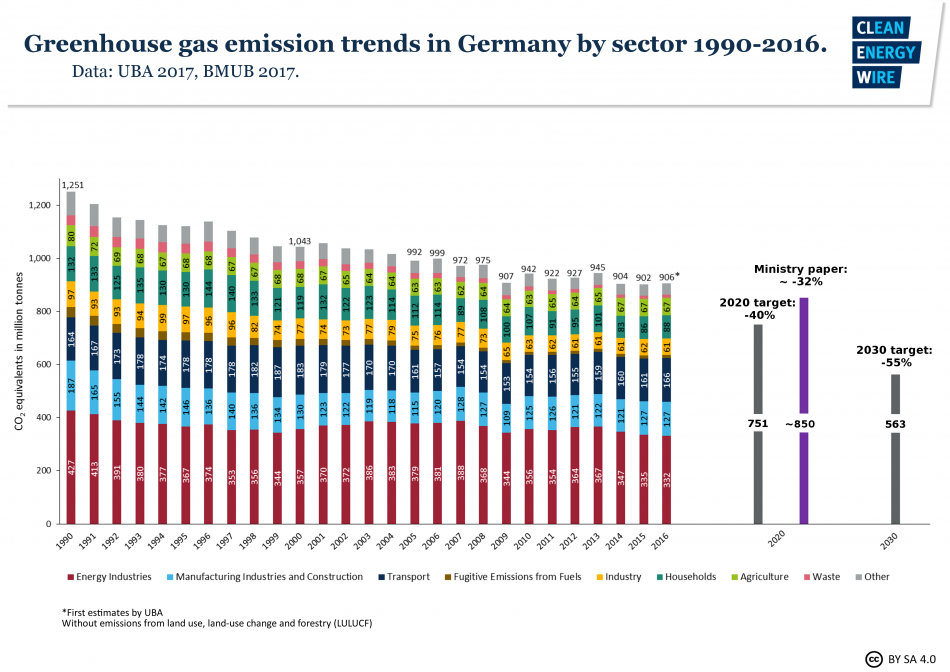German Co2 Emissions Remain Stubbornly High
A lot of people I talk to about renewable energy in Minnesota think of Germany as a great example what we should be doing here.
Green groups in the U.S. constantly characterize Germany’s aggressive attempts to increase the amount of electricity generated by wind and solar as a smashing success, but unfortunately, these accounts fail to tell the whole story.
In reality, Germany’s “energy transition” has stalled, according to YaleEnvironment360.
“Today, the Energiewende finds itself stalled and floundering. Germany’s carbon emissions have stagnated at roughly their 2009 level. The country remains Europe’s largest producer and burner of coal, which generates more than one-third of Germany’s power supply. Moreover, emissions in the transportation sector have shot up by 20 percent since 1995 and are rising with no end in sight, experts say. German consumers have seen their electricity bills soar since 2000, in part because of the renewable energy surcharge.”
Electricity prices in German are roughly three times higher than in the United States. Despite the high price of power, Deutschland has failed to meet their preliminary targets for reducing their carbon dioxide emissions.
“Now, complex, discomfiting questions loom about the way forward if Germany is to meet even its minimal targets and play the nation’s part in putting the brakes on global warming.”
Germany is slated to miss their 2050 targets, as well.
“If the country continues along its present course, carbon emissions will fall by only 62 percent by 2050 — well short of the government’s goal of slashing emissions up to 95 percent below 1990 levels by mid-century. And analysts say that the challenges Germany now faces will confront other industrialized societies as they attempt to wean themselves off fossil fuels.”
All nations that attempt to decarbonize their grids using renewable energy sources like wind and solar will suffer similar fates because these sources of energy are inherently unreliable. The inability of wind and solar to provide electricity 24/7 means fossil fuels will be needed to keep the lights on. As a result, wind and solar cement the need for fossil fuels in the future.
The only true substitute for fossil fuels is nuclear power, but Germany has been phasing out their nuclear fleet since 2011. This will make their goals of reducing carbon dioxide emissions almost impossible to achieve.
Renewable energy advocates often claim we can completely eliminate our use of fossil fuels, reduce our CO2 emissions and reduce costs all at the same time, but the data suggest otherwise. Minnesota has seen its electricity prices increase 26 percent faster than the national average since 2007, and our CO2 emissions from power plants have only fallen about 25 percent.
The only real way to reduce emissions is to pursue more nuclear power, which is why Germany’s foray into renewables has failed to deliver the desired results. Minnesota should take heed, and avoid Germany’s mistakes.